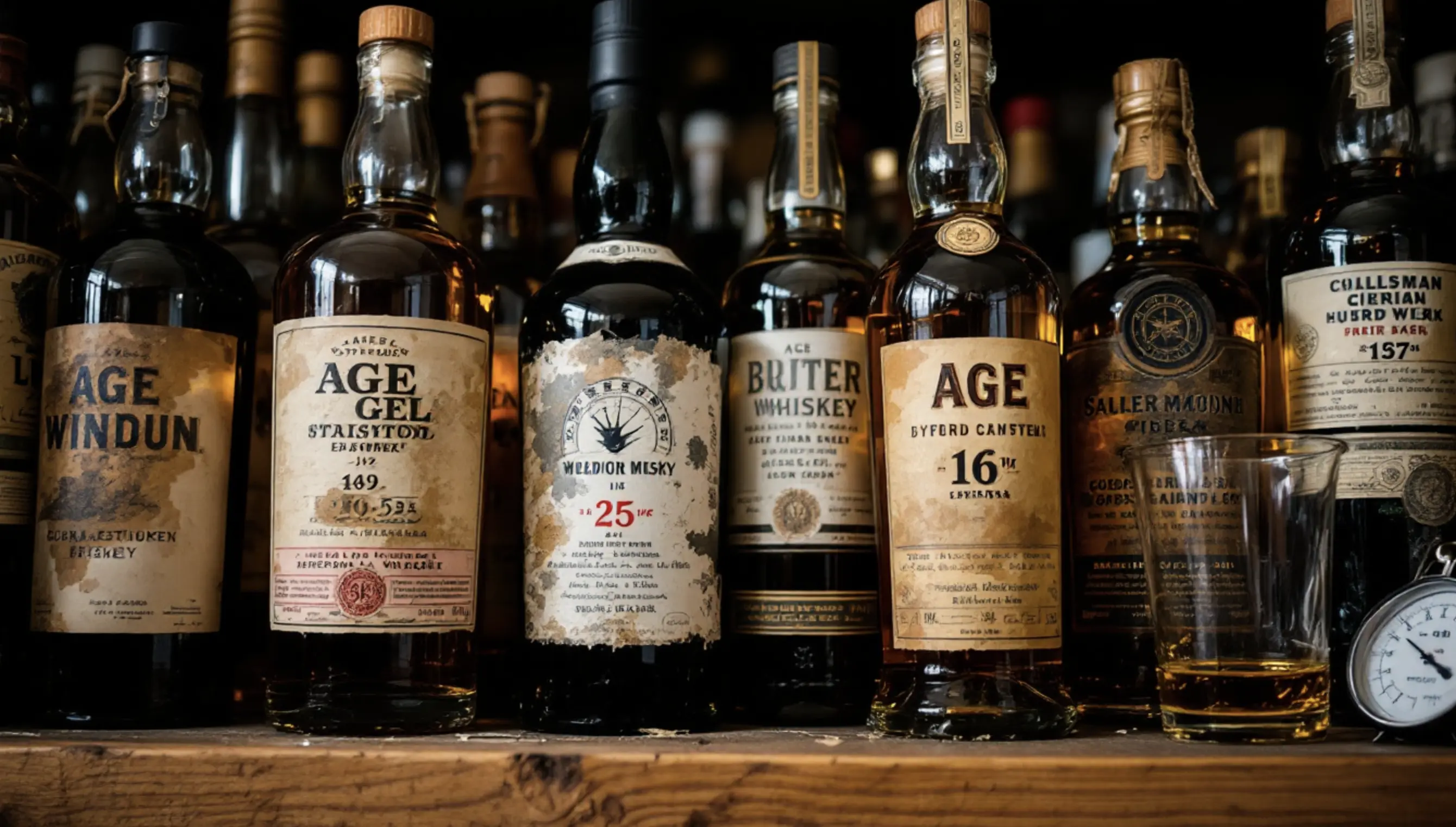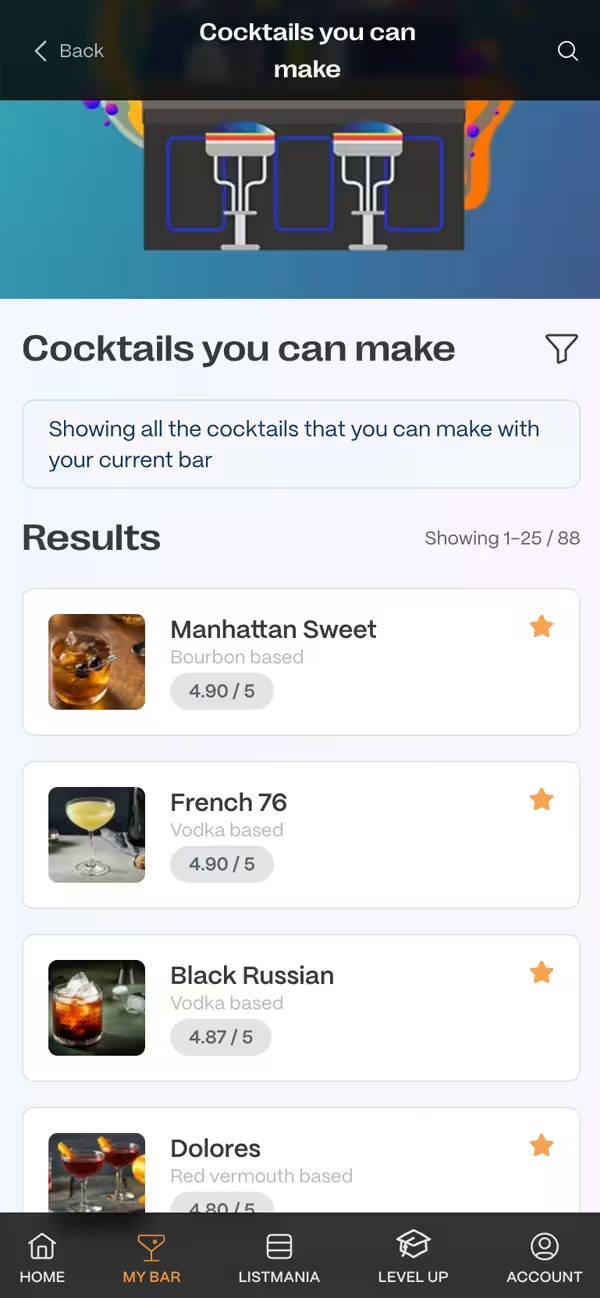Does Alcohol Expire? A Guide to the Shelf Life of Liquor
Jump to
- Understanding Liquor Shelf Life
- How Long Does Liquor Last?
- Best Practices for Storing Alcohol
- Shelf Life of Different Liquor Types
- Special Considerations for Wine-Based Spirits
We've all been there. You're cleaning out a cabinet and discover that dusty bottle of fancy liquor your aunt brought back from her European vacation three years ago. Or maybe you're eyeing that half-empty bottle of Bailey's that's been sitting in your fridge since last Christmas. The million-dollar question hits you: "Does this stuff go bad?" Before you pour it down the drain (or bravely take a swig), let's explore the fascinating world of alcohol shelf life.
Understanding Liquor Shelf Life
Unlike that forgotten container of takeout in your fridge, most alcoholic beverages don't come with a clear expiration date. Instead, they exist in a strange limbo where "expiration" becomes a surprisingly complex concept. The good news? Many spirits can last practically forever—though "forever" comes with some important caveats.

Shelf Life of Liquor Fast Facts
Let's cut to the chase: unopened distilled spirits like whiskey, vodka, gin, rum, and tequila can last indefinitely. Yes, you read that right—indefinitely. That bottle of bourbon your grandfather left you could theoretically be enjoyed by your great-grandchildren someday (though let's be honest, why wait that long?).
Once opened, however, the clock starts ticking—albeit very slowly. Most distilled spirits will maintain their quality for 1-2 years after opening, though they remain safe to drink long after that. Cream liqueurs are the high-maintenance divas of the alcohol world, typically lasting only 6-18 months after opening, and they actually can spoil in ways that might make you regret that experimental sip.
Factors Affecting Liquor Longevity
The three horsemen of the alcohol apocalypse are heat, light, and oxygen. Heat accelerates chemical reactions that degrade flavor compounds. Light (especially sunlight) breaks down molecules and can cause discoloration. And oxygen—the same stuff keeping us alive—ironically causes alcoholic beverages to slowly deteriorate through oxidation.
Alcohol content also plays a crucial role in preservation. Higher proof spirits (above 40% ABV or 80 proof) are essentially self-preserving due to their high alcohol content, which creates an environment where bacteria struggle to survive. Lower proof options, especially those with sugar or dairy, are more vulnerable to spoilage.
How Long Does Liquor Last?
When it comes to alcohol longevity, not all booze is created equal. Let's break down what you can expect from different categories.
.webp)
Distilled Spirits Longevity
The heavyweight champions of alcohol shelf life are your classic distilled spirits: whiskey, vodka, gin, tequila, and rum. Unopened, these bottles can outlive your mortgage. Once opened, quality typically remains optimal for about 1-2 years, though they remain perfectly safe to drink for many years beyond that.
You might notice subtle changes in very old opened bottles—perhaps a slight dulling of flavors or a less vibrant character—but rarely anything that renders them undrinkable. That said, if your whiskey suddenly smells like wet cardboard or your vodka has mysterious floating particles, it's probably time to say goodbye.
Liqueurs and Amari Durability
Liqueurs and amari—those delightful, often sweet or herbal concoctions—are the middle children of the alcohol family when it comes to longevity. Their higher sugar content and often lower alcohol percentage make them more vulnerable to quality degradation.
Most liqueurs will last 1-3 years after opening, though cream-based options like Bailey's or RumChata have shorter lifespans (6-18 months) and should be refrigerated after opening. If your cream liqueur starts to curdle, change color, or develop an off smell, it's definitely time to pour it out—no heroic last drinks necessary.
Best Practices for Storing Alcohol
Proper storage is the secret to maximizing your booze's lifespan. Think of it as a retirement plan for your favorite bottles.
Optimal Storage Conditions
The ideal environment for most spirits is cool, dark, and consistent. Aim for temperatures between 55-60°F (13-15°C) if possible, though normal room temperature is generally fine. Keep bottles upright—unlike wine, spirits shouldn't touch their corks—and away from direct sunlight or heat sources like radiators or ovens.
For opened bottles, ensuring a tight seal is crucial to minimize oxygen exposure. If the original cork or cap seems compromised, consider transferring smaller amounts of remaining liquor to appropriately sized bottles to reduce the air-to-liquid ratio.
Pardon the interruption
Did you know that you can become a member for free, taking your cocktail making skills up to level 11. You can save your My Bar ingredients, make tasting notes, have personalised Tried and Want to try lists and more.
Avoiding Common Storage Mistakes
The liquor cabinet above your stove? Terrible idea. That sunny windowsill display of colorful bottles? A flavor-killing light show. The freezer for your vodka? Actually fine for short periods, but unnecessary for long-term storage and potentially problematic for complex spirits like whiskey.
Another common mistake is forgetting about partially empty bottles. The more air in the bottle, the faster oxidation occurs. If you're down to the last quarter of a special bottle, consider enjoying it sooner rather than later, or transfer it to a smaller container.
Shelf Life of Different Liquor Types
Let's get specific about what to expect from different categories of spirits.
Shelf Life of Distilled Spirits
Whiskey, bourbon, scotch, and rye typically maintain optimal quality for 1-2 years after opening, though they remain safe indefinitely. Very old opened bottles might lose some nuance but rarely become "bad." Vodka, gin, rum, and tequila follow similar patterns, with clear spirits sometimes showing slightly better longevity than aged ones.
The higher the proof, the better the staying power. That cask-strength whiskey at 55% ABV will likely outlast its 40% counterpart in terms of flavor preservation.
Shelf Life of Liqueurs and Amaro
Fruit liqueurs generally last 1-2 years after opening, while herbal options like amari might stretch to 3 years or more. The sugar content acts as both preservative and vulnerability—it helps with shelf stability but can eventually lead to flavor changes.
Cream liqueurs are the most finicky, requiring refrigeration after opening and consumption within 6-18 months. If you notice separation, curdling, or an off smell, it's time to replace that bottle.
Special Considerations for Wine-Based Spirits
Wine-based spirits and aperitifs follow different rules than their distilled cousins, requiring extra attention.
Shelf Life of Vermouth
Surprise! That bottle of vermouth you've had open for three years for the occasional Martini or Manhattan? It probably went bad months ago. As a fortified wine, vermouth should be refrigerated after opening and consumed within 1-3 months.
Unopened vermouth can last 3-4 years if stored properly, but once that seal is broken, the clock ticks much faster than with traditional spirits. The telltale signs of spoiled vermouth include a vinegary smell, flat taste, or change in color.
Storage Tips for Wine-Based Spirits
All wine-based products—including vermouth, sherry, port, and Lillet—benefit from refrigeration after opening. Consider writing the opening date on the bottle with a marker to help track its lifespan.
If you only use these products occasionally, consider purchasing smaller bottles or exploring the growing market of half-bottles. Your Negronis and Manhattans will thank you for using fresh vermouth, and you'll save money by not pouring spoiled product down the drain every few months.
Filed with tags
Related posts
Low-ABV Cocktails That Still Pack Flavor
In a world where high-proof spirits often steal the spotlight, low-alcohol cocktails are making a splash of their own. Whether you're looking to sip and savor without the dizzying effects of a full-st...
Famous Olympic Moments and the Cocktails to Celebrate Them
The Olympics have provided us with countless incredible moments throughout history. From record-breaking athletic feats to inspiring stories of perseverance, the Games have always been a source of joy...
Would you like cream with that?
Some of our favourite cocktails are the ones we top with cream. And there is nothing that a good hot chocolate can’t fix – especially at this time of year. The best ones have a hefty serving of cream...
Subscribe to our Newsletter
Get tips straight into your inbox.
Upgrade your mixology
Become a member for free taking your cocktail making skills up to level 11. Or become a premium member to rise to cocktail greatness.
- Save your bar forever
- Access to our Cocktail Creator, allowing you to create your own wonderful concoctions.
- Access to Cocktail Colin; ask Cocktail Colin anything on an individual cocktail and he'll give you the answers you need.
- Create personalised cocktail menus for all your events, bars or parties
- Save cocktails to personalised 'Tried' and 'Want to try' lists
- Create and record tasting notes on cocktails
- Create lists of cocktails to share with friends and family
- A personalised MyBar URL, allowing you to share everything you can make with friends
- And much more ... (what to buy next, measurement choices, search personalisation...)
Have you tried our Wordpress Plugin?
Download our plugin and embed cocktail recipes directly onto your own site or blog.
Choose from our whole recipe database, or choose a specific cocktail made with a certain ingredient, and let us place a beautiful recipe on your own site.
Find out more



